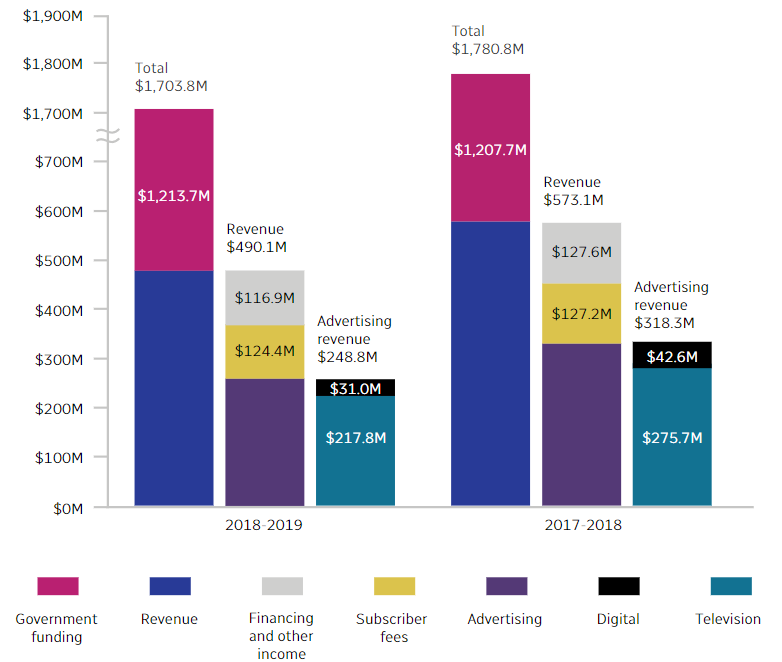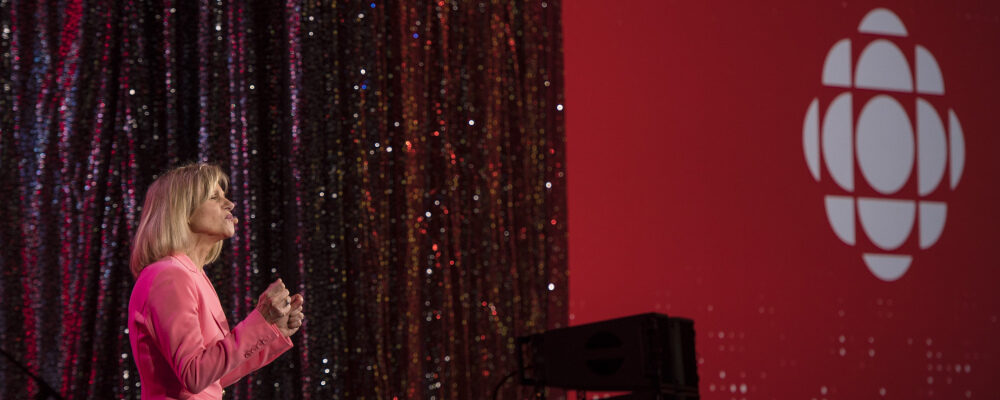Sometimes the fog of war reveals as much as it hides.
Such could very well turn out to be the case for the CBC which, having taken up arms with Opposition leader Pierre Poilievre and the Conservative party, pretty much lost its mind this week when Twitter applied the label “government-funded” to its government-funded tweets.
OK, OK, Twitter’s definition of “government-funded” implies a level of political interference that’s questionable, but such nuances are of little interest to the Marthas and Henrys of this world who may have caught wind of the controversy.
All they saw was the CBC’s damsel in distress response—faint, vapours-laden pleas concerning journalistic independence followed by a huffy withdrawal from the highly political social media platform. And then, of course, there was its protagonist, Twitter owner Elon Musk, perfectly adapted to the role of Bond villain, achieving peak smartass status with his replies whilst twirling a rhetorical moustache.
Sorting through the wreckage, the National Post’s Tristin Hopper dug out a chart from the CBC’s 2018-19 annual report. While the numbers themselves are accurate, the graphic presentation clearly misrepresents/understates the extent to which the CBC is dependent on government funding.

Which raises the question: is the CBC embarrassed by its government funding?
Does it harbour a desire to be a powerful, commercial news and entertainment provider? More NBC/MSNBC than BBC? Before its executives fall asleep at night do their eyelashes flutter at the thought of dominating the media landscape and crushing the competition?
There’s certainly evidence to support the idea that CBC executives are a lot more interested in leading a successful commercial entity than they are enamoured with the far less cool kids’ concept of running a competent public broadcaster.
Just ask the once passionate staff of Radio Canada International, who have been forced to watch as (in clear violation of the Broadcasting Act) the service that once took Canada to the world has been converted to, essentially, an ethnic radio streaming service competing against the nation’s private-sector (in other words, not government-funded) ethnic radio services.
Or those who reel in horror at the idea of Tandem—a new revenue line being developed to sell (there are less kind descriptions) “sponsored” advertorial content under the CBC banner as if it was standing on a street corner in fishnets, smoking a cigarette.
After all, the CBC’s executives once described themselves at a CRTC public hearing as not so much representing a public broadcaster but a “publicly-funded commercial broadcaster.” And that is exactly what the CBC has become: a subsidized behemoth rolling over its private-sector competition. It is exactly as predicted by Globe and Mail publisher Philip Crawley when he appeared before the House of Commons Heritage Committee in 2016.
The playing field is “not level if taxpayers’ dollars directed to the public broadcaster make the competition for digital ad dollars more difficult,” Crawley told the committee at the time. ”The CBC is The Globe’s largest competitor in the digital ad space among Canadian-based media. My colleagues and I in the industry do not support the notion that handing out more money to the CBC helps local or national newspapers.”

Indeed, as the Globe reported at the time, “the CBC is increasingly described as a great disruptor of the media landscape, with its recent budget increase of $675-million over five years coming as losses are growing and newsrooms are closing in the private sector.
“The CBC is specifically facing criticism over the expansion of its presence on the Internet, including the recent creation of an opinion section on its website with columns and op-eds that are in direct competition with several newspapers.”
Brian Lilley, now with the Toronto Sun/Postmedia, was before the committee in 2016 as a co-founder of The Rebel. He too asked the committee to rein in the CBC’s campaign to dominate online audience.
“You can’t have a level playing field when the public broadcaster…wants to be all things to all people,” he said. “There is no reason that they should be expanding digital-only platforms of opinion.”
At the time, the response from the CBC was pretty much “Oh pshaw, our digital advertising is only one percent of our revenue.”
But, hey, half a dozen years later, and, according to the CBC’s 2021-22 annual report, those digital revenues are more like $86 million or almost 20 percent of the company’s $440 million in advertising revenue. For context, that’s roughly the amount of money the Parliamentary Budget Officer estimates will be generated for newspapers from web giants if the Online News Act (Bill C-18) is successfully implemented. And he also estimates that CBC will be the biggest recipient of C-18 loot.
Little wonder then, that CBC was so embarrassed by the label “government-funded” being slapped on it by the vulgar likes of Mr. Musk.




